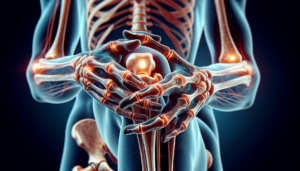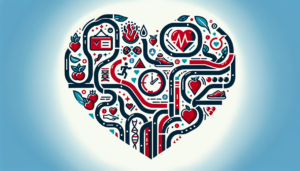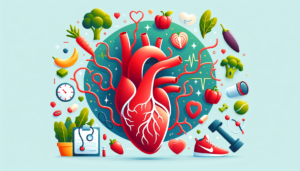Hydration and Essential Nutrients: A Balanced Approach
Understanding Hydration
Importance of Hydration
Hydration is a crucial aspect of overall health. Water is the primary component of the human body, accounting for approximately 60% of body weight. It plays a vital role in maintaining body temperature, providing nutrients to cells, and eliminating waste. Dehydration can lead to severe health issues, including kidney stones, urinary tract infections, and even cognitive decline.
How Much Water Do You Need?
The commonly accepted guideline is to drink eight 8-ounce glasses of water a day, known as the "8×8 rule." However, individual needs may vary based on factors like age, sex, weight, physical activity, and climate. Generally, men are advised to consume about 3.7 liters (125.1 ounces) per day, while women need around 2.7 liters (91.2 ounces) from all beverages and foods.
Signs of Dehydration
Recognizing the signs of dehydration is essential. Symptoms can range from mild to severe and include:
- Thirst
- Dry mouth and throat
- Dark urine
- Fatigue
- Dizziness or lightheadedness
- Confusion or irritability
Strategies for Staying Hydrated
-
Drink Regularly: Instead of waiting until thirsty, make it a habit to drink water throughout the day.
-
Add Flavor: Infuse your water with fruits, herbs, or vegetables to make it more appealing.
-
Eat Water-Rich Foods: Include fruits and vegetables, like cucumbers, watermelon, and oranges, in your diet for additional hydration.
- Set Reminders: Use smartphone apps or alarms to remind you to drink water consistently.
Essential Nutrients for Optimal Health
Macronutrients Overview
Macronutrients are nutrients required in large amounts that provide energy. They include carbohydrates, proteins, and fats.
1. Carbohydrates:
Carbohydrates are the body’s primary energy source. They are categorized into simple carbohydrates (sugars) and complex carbohydrates (starches and fiber).
- Sources: Whole grains, fruits, vegetables, and legumes.
- Recommended Intake: 45-65% of your total daily caloric intake should come from carbohydrates.
2. Proteins:
Proteins are essential for building and repairing tissues, making enzymes, and supporting immune function.
- Sources: Meat, fish, poultry, eggs, dairy, legumes, nuts, and soy.
- Recommended Intake: 10-35% of total daily calories should come from proteins, translating to about 0.8 grams per kilogram of body weight for average adults.
3. Fats:
Fats are necessary for hormone production, nutrient absorption, and insulation.
- Sources: Avocados, nuts, seeds, olive oil, and fatty fish.
- Recommended Intake: 20-35% of total daily caloric intake should come from fats, focusing on unsaturated fats for better health.
Micronutrients Explained
Micronutrients are vitamins and minerals needed in smaller quantities but are crucial for various bodily functions.
1. Vitamins:
Vitamins play critical roles in metabolism, immunity, and bone health. Key vitamins include:
- Vitamin A: Essential for vision and immune function, found in carrots and sweet potatoes.
- Vitamin C: Important for skin health and immune function, found in citrus fruits and bell peppers.
- Vitamin D: Vital for bone health, sources include sunlight exposure and fortified dairy products.
2. Minerals:
Minerals contribute to numerous physiological functions such as muscle contraction and nerve transmission.
- Calcium: Essential for bone health, found in dairy products, leafy greens, and fortified foods.
- Iron: Crucial for oxygen transport in the blood, found in red meat, beans, and fortified cereals.
- Magnesium: Important for muscle and nerve function, found in nuts, seeds, and whole grains.
The Role of Electrolytes in Hydration
What are Electrolytes?
Electrolytes are minerals in your blood and other bodily fluids that carry an electric charge. They are essential for various bodily functions, including:
- Regulating fluid balance
- Maintaining acid-base balance
- Supporting muscle contractions and nerve impulses
Key Electrolytes
- Sodium: Helps control fluid balance and blood pressure.
- Potassium: Essential for heart and muscle function.
- Chloride: Works with sodium to maintain fluid balance.
- Calcium: Plays a role in muscle contractions and nerve signaling.
Sources of Electrolytes
Electrolytes can be replenished through diet and hydration. Foods high in electrolytes include:
- Bananas and oranges (potassium)
- Spinach and kale (magnesium)
- Salted foods and broths (sodium)
- Dairy (calcium)
Hydration and Athletic Performance
Competitive athletes and fitness enthusiasts must pay extra attention to hydration and electrolyte balance. Intense physical activity leads to dehydration through sweat loss, which can impair performance.
- Pre-Exercise Hydration: Drink fluids before workouts to ensure optimal hydration.
- During Exercise: For prolonged exercise, consider sports drinks that contain electrolytes to maintain performance.
- Post-Exercise Recovery: Replenish lost fluids and electrolytes after workouts. Water, coconut water, or electrolyte-infused drinks are excellent options.
Balancing Hydration and Nutrient Intake
Hydration and Diet Synergy
A well-balanced diet should complement adequate hydration. Certain foods can enhance hydration levels, while others may dehydrate.
- Hydrating Foods: Include watermelon, cucumbers, oranges, and strawberries in your diet. These foods have high water content and provide essential nutrients.
- Dehydrating Foods: Limit intake of high-sodium snacks, added sugars, and caffeine, which may lead to increased urine production and potential dehydration.
Timing Hydration with Meals
To maximize nutrient absorption, drink water in moderation during meals. Excessive fluid intake can dilute digestive enzymes, potentially impairing nutrient breakdown and absorption.
Common Myths About Hydration and Nutrition
-
Myth: You Can Overhydrate
Though rare, overhydration can occur, leading to water intoxication, which dilutes electrolytes and may cause serious health problems. Monitor your hydration needs according to your level of physical activity and climate. -
Myth: All Hydration Comes from Water
While water is vital, hydration includes all beverages and high-water-content foods. Herbal teas, broths, and fruits contribute significantly to total fluid intake. - Myth: You Don’t Need to Hydrate in Cold Weather
Dehydration can still occur in winter months as heat in indoor environments can lead to fluid loss. Hydration remains crucial.
Tips for Achieving a Balanced Approach
-
Mindful Eating and Drinking: Pay attention to your body’s signals about thirst and hunger. Drink water when you feel thirsty and choose a variety of nutrient-dense foods.
-
Plan Balanced Meals: Incorporate a mix of carbohydrates, proteins, and fats in your meals while including fruits and vegetables for vitamins and minerals.
-
Monitor Hydration Levels: Watch the color of your urine; light yellow indicates proper hydration, while darker shades can signal the need for more fluids.
-
Use Technology Wisely: Utilize hydration tracking apps to monitor your daily intake, which can help you establish consistent hydration habits.
- Consult a Professional: If unsure about your individual needs, consider consulting a registered dietitian or nutritionist for personalized advice on hydration and nutrient intake.
Recommended Daily Intakes for Key Nutrients
To further ensure a balanced approach to hydration and essential nutrients, refer to the following recommended daily intakes:
-
Water:
- Men: 3.7 liters (125.1 ounces)
- Women: 2.7 liters (91.2 ounces)
-
Protein:
- Average adult: 0.8 grams per kilogram of body weight.
-
Fiber:
- Women: 25 grams
- Men: 38 grams
-
Vitamin A:
- Men: 900 micrograms
- Women: 700 micrograms
- Vitamin C:
- Men: 90 milligrams
- Women: 75 milligrams
Incorporating these insights into your daily routine will help you strike a balance between hydration and essential nutrient intake, promoting overall health and wellness.








